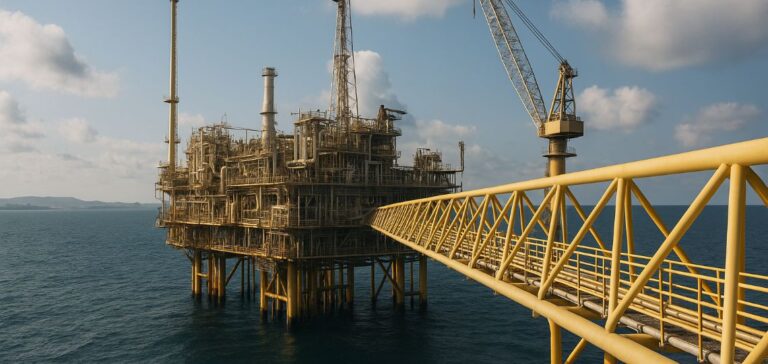Ecopetrol S.A. has confirmed the development of a strategy aimed at ensuring the continuity of its gas projects in the southern Caribbean Sea, following Shell Plc’s withdrawal from three offshore projects. The Colombian group stated that this initiative aims to maintain medium-term energy supply and secure the exploitation of major discoveries.
Since 2020, Shell held 50% of the Col 5, Purple Angel and Fuerte Sur blocks, where gas discoveries Kronos-1, Purple Angel 1, Gorgon 1 and 2, and Glaucus 1 are located. Ecopetrol retains the other half of the shares and is now seeking new partners to ensure the continuation of operations. The national company indicated that these projects remain technically and economically viable.
Impact of Shell’s global strategy
Shell’s decision aligns with its March announcement to cut costs by several billion dollars and increase shareholder profitability while focusing on liquefied natural gas (LNG). Ecopetrol specified that this decision is linked to Shell’s global portfolio management strategy, without providing further details.
The withdrawal occurs amid an evolving energy context in Colombia, where the gas field discovery in 2017 was hailed as the largest in twenty-eight years. However, recent energy policy changes, driven by President Gustavo Petro since his election in 2022, have led to the suspension of several hydrocarbon exploration contracts.
Development of the Gorgon project and outlook
Ecopetrol plans to complete the technical maturation and socio-environmental viability management of the Gorgon project by the first half of 2029. Commercial production is envisaged between 2031 and 2032, relying on a connection to the National Transportation System to deliver the gas.
Meanwhile, Ecopetrol and Shell maintain their collaboration on other projects, including the development of the Gato do Mato field in Brazil in partnership with TotalEnergies SE, where significant investments are planned in 2025. Ecopetrol reaffirmed its commitment to developing strategic gas resources in the Caribbean Sea.






















